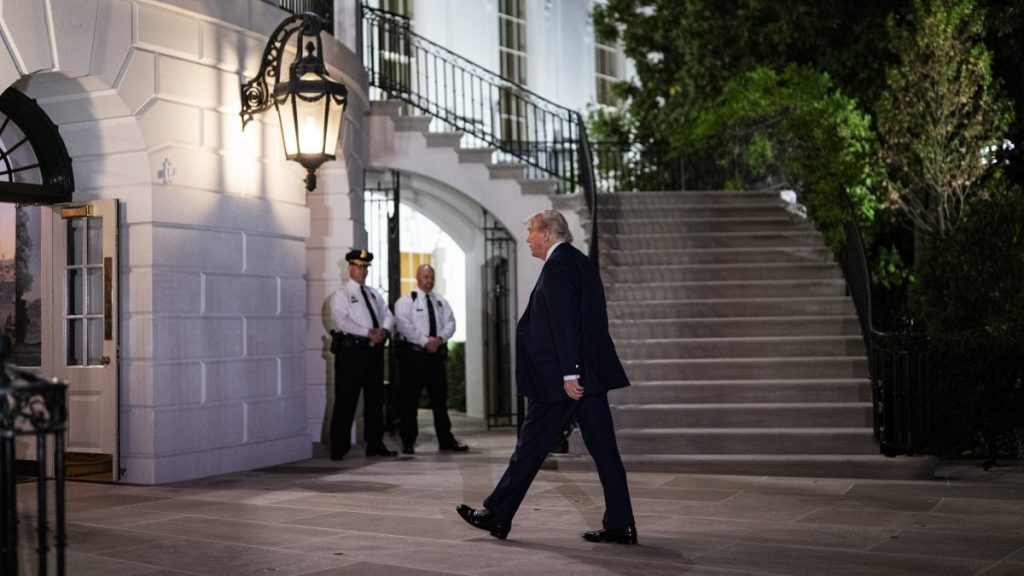During his first term as U.S. president, Donald Trump, in many ways, distanced himself from the European Union. Relations between the U.S. and EU member states grew markedly colder.
In diplomacy, a single image can sometimes convey more than words. At a news conference following one of their meetings, when German Chancellor Angela Merkel extended her hand to Trump, he stared off into the distance like a schoolboy, leaving her hand awkwardly hanging. At that moment, Trump appeared to humiliate Merkel in front of the media – or at least leave her awkward.
Where Trump seemed poised to unravel the EU, former U.S. President Joe Biden stepped in and worked to restore cohesion. He revitalized NATO and re-energized the European states. However, in return for this favor, European states were drawn into the Ukraine-Russia war.
Of course, deep-seated tensions existed between Ukraine and Russia well before the war. In 2014, Russia annexed Crimea – an integral part of Ukrainian territory and the historic homeland of the Crimean Tatars.
Crimea is a key piece of the Ukraine-Russia conflict. It has enabled Russia to sustain its war effort through the Kerch Bridge via vital logistical support routes. Yet curiously, the topic of Crimea was often avoided by Western actors, even as they opposed Russia militarily.
One notable exception was Türkiye, a NATO member with good relations with Russia and the West. At every turn – whether in bilateral discussions with Moscow or in international forums – Ankara consistently and unequivocally rejected Russia’s annexation of Crimea. It clearly and repeatedly voiced its stance.
A huge geopolitical mistake
Despite his outsized sense of importance, Trump’s handling of the Ukraine-Russia war has exposed his strategic shortcomings in the geopolitical chess game.
Imagine a war in which Russia is backed by Iran, China and North Korea. On the other side stands nearly the entire NATO alliance – excluding Türkiye – along with the broader liberal world, united in opposition to Russia. Trump had claimed he would bring an end to the war, issuing bold proclamations as he took office.
One would expect Trump, as a representative of the U.S., to support Ukraine’s position and ensure that it emerges strong from any negotiations. This would be a reasonable course of diplomacy, especially considering that the U.S. and European states have poured billions of dollars into Ukraine’s defense. In truth, this conflict is less a Ukraine-Russia war than it is a confrontation between Russia and the collective West.
Yet Trump undermined Ukrainian President Volodymyr Zelenskyy without even first securing terms with Russia. Instead of bolstering Ukraine’s position and encouraging a fair peace, he undercut its economy and military support while degrading its standing at the negotiating table – effectively leaving Zelenskyy in a humiliated and powerless position against Russian President Vladimir Putin.
This also handed a golden opportunity to the seasoned Russian leader. With his extensive experience and centuries-old statecraft of Russia, Putin quickly recognized and began exploiting this strategic vacuum.
It now appears that Trump is more interested in acquiring the deeds to Ukraine’s vast mineral wealth than in resolving the conflict itself.
As the war continues, Russia has intensified its military presence, advancing slightly across Ukrainian territory despite heavy losses. It has also escalated its air raids on major cities such as Kyiv to weaken the morale of Ukraine’s civilian population.
Crimea belongs to the Tatars
Amid all this, what should have been the subject of debate – Russia’s illegitimate occupation of Ukrainian land – has been reframed by the U.S. administration and Trump in particular, with an alarming suggestion: to tacitly accept Crimea as Russian territory.
Such a stance is unprecedented in diplomatic norms. Crimea has always been the homeland of the Tatars – an ethnically Turkic people. Though many Tatars were forcibly deported to Siberia under Joseph Stalin and suffered immense losses, the peninsula still bears the legacy of its Turkic heritage. City names such as Akmescit (Simferopol) and Bahchesaray reflect this lineage. A significant Tatar population continues to reside there.
Unlike the Kazan Tatars, the Crimean Tatars speak a remarkably pure form of the Turkish language. Their dialect closely resembles Ottoman Turkish and modern Istanbul Turkish.
After Russia’s annexation in 2014, the Ukrainian Parliament formally recognized Crimea as the historic homeland of the Tatars – an affirmation of both heritage and rightful sovereignty.
Yet the U.S., under Trump’s cavalier diplomacy, appears willing to disregard centuries of history and Ukraine’s legitimate claim to Crimea. He seems prepared to “gift” this territory to Russia – land that rightfully belongs to the Crimean Tatars and is recognized as an autonomous region within Ukraine.
This is a betrayal of Ukraine and Zelenskyy and a move entirely alien to the traditional American diplomatic posture. It remains to be seen how far Putin will capitalize on this opportunity before the war concludes.
As a Turkish citizen with a deep sensitivity to historical justice, I will continue to support Türkiye’s rightful stance: Crimea is the land of the Crimean Tatars. We will never recognize its annexation by Russia – even if Trump seeks to hand it over as a personal favor to Putin.


